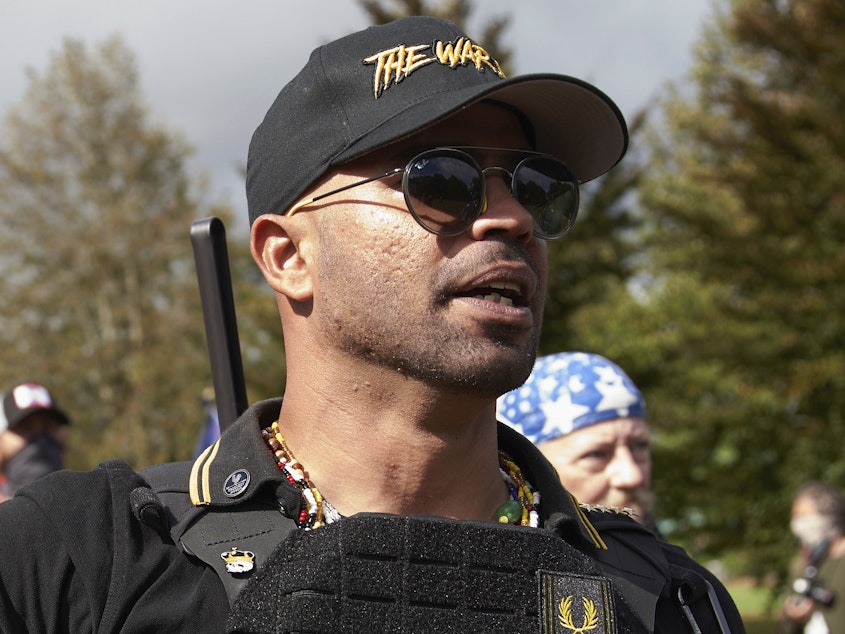Former Proud Boys leader Enrique Tarrio sentenced to 22 years for Jan. 6 riot role

Enrique Tarrio, the former national chairman of the Proud Boys, has been sentenced to 22 years in prison for his role in the Jan. 6, 2021 attack on the U.S. Capitol. Tarrio was one of six Proud Boys leaders to be charged for conspiring to stop the certification of the 2020 presidential election results in Congress. Of them, he has received the longest prison sentence to date.
Tarrio's originally scheduled sentencing hearing was postponed last week after Judge Timothy Kelly fell ill.
Prosecutors asked for a 33-year sentence. Tarrio's attorneys, however, pleaded with Judge Kelly to impose a sentence of no longer than 15 years.
So far, Tarrio's co-defendants in the Proud Boys seditious conspiracy case have been sentenced to prison stays far shorter than what the government requested of the court.
Of the Jan. 6 rioters, the head of the Seattle chapter of the Proud Boys and Tarrio's co-defendant Ethan Nordean and Oath Keepers founder Stewart Rhodes, who was convicted in a separate case, received the longest sentences so far with 18 years.
Sponsored
Nordean was sentenced last Friday.
Tarrio, Nordean, Joseph Biggs and Zachary Rehl were all convicted for seditious conspiracy and other crimes in May. A fifth defendant, Dominic Pezzola, was acquitted on that charge but found guilty of assaulting, resisting or impeding certain officers and robbery involving government property.
Like Tarrio, prosecutors wanted to see Biggs get 33 years in prison. However, Judge Kelly gave him 17 years.
Tarrio was also convicted for obstructing an official proceeding, conspiracy to prevent an officer from discharging their duties, obstruction of law enforcement during a civil disorder and destruction of government property with value of over $1,000.
Tarrio wasn't at the actual Capitol riot because he had been arrested days earlier for setting fire to a Black Lives Matter banner, stolen from Asbury United Methodist Church in Washington, D.C., and was ordered out of the city.
Sponsored
Prosecutors say from a hotel outside of D.C., Tarrio directed his Proud Boys to attack the Capitol without him.
Tarrio's attorney have said he wasn't in contact with any members of the organization during the riot and pointed to Nordean and Biggs as being the orchestrators of the riot. Further, they said, "Participating in a plan for the Proud Boys to protest on January 6 is not the same as directing others on the ground to storm the Capitol by any means necessary."
Extremism experts say the Proud Boys likely will feel little impact from these sentences, however.
"They remain active organizing, recruiting," said Cassie Miller, senior research analyst at the Southern Poverty Law Center. "And this authoritarian movement that they are a part of has continued to grow, as well."
Miller said that unlike many other paramilitary organizations, the group has grown in both membership and number of chapters since January 6th. She said this is in large part because the far-right group has pivoted away from national organizing to local activism on issues such as the restriction of LGBTQ and abortion rights.
Sponsored
[Copyright 2023 NPR]



